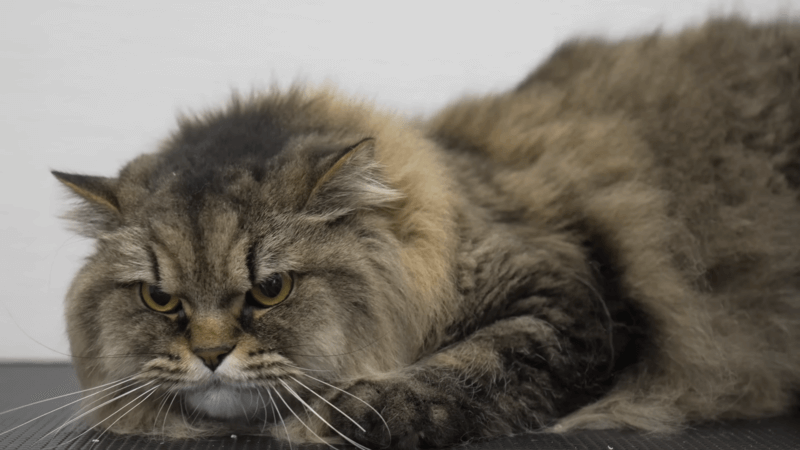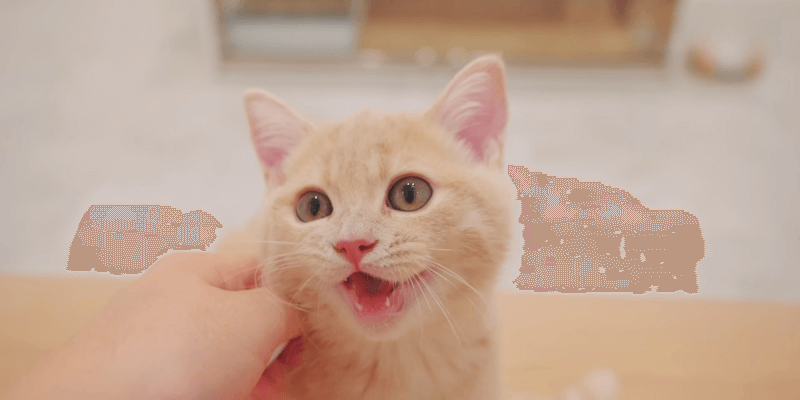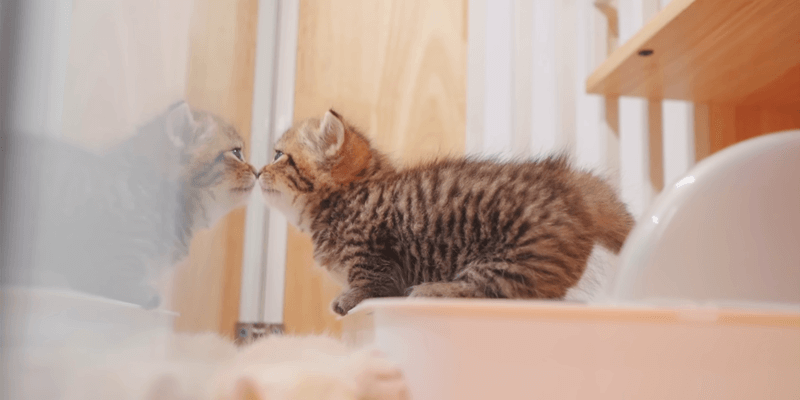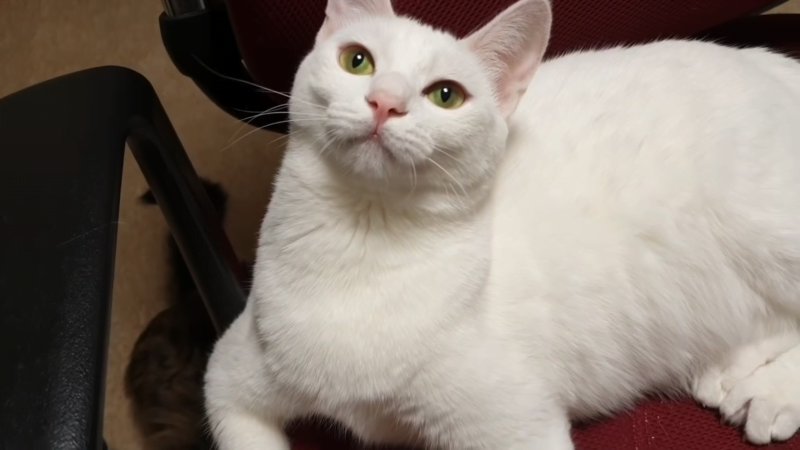No products in the cart.
How to give CBD to cats requires a patient and gentle approach to ensure their well-being and comfort. Many cat owners are turning to CBD as a potential natural supplement to address various health issues, such as stress, pain, and digestive problems. However, the process of giving CBD to cats can be challenging, as feline buddies are sensitive to changes in their environment and diet.
In this blog, we will explore some tips for giving cats CBD oil, dosage guidelines, product selection, potential benefits, and can CBD help with digestive issues or not. By understanding how to introduce CBD to cats effectively, we can enhance their overall health and support their journey to well-being.
How to Give CBD to Cats
Administering CBD to cats requires patience and a gentle approach. Here is a detailed tutorial on how to administer CBD to cats:
- Start Slowly: Begin with a low dose of CBD drops for cats to gauge your cat’s response and tolerance. Gradually increase the dosage as needed.
- Choose the Right Product: Select a high-quality CBD oil or CBD-infused cat treat specifically formulated for pets. Ensure it contains minimal THC.
- Mix with Food: Mix the appropriate dosage of CBD oil into your cat’s favorite wet food or treats. This disguises the taste and makes it easier for them to consume.
- Direct Administration: If your cats are comfortable with CBD, you can use a dropper to place the CBD oil directly into their mouth. Place the oil under their tongue for faster absorption.
- Reward System: After administering the CBD, reward your cat with treats or affection to create a positive association.
- Stay Calm and Patient: Cats can sense anxiety, so remain calm and patient during the process.
- Monitor Your Cat: After giving CBD, watch your cat’s behavior and general health. If there are any positive or negative changes, note them and modify the dosage.

CBD for Cats
CBD (cannabidiol) for cats refers to the use of CBD products specifically formulated for feline consumption. CBD is a naturally occurring compound found in the cannabis plant, and it is one of many cannabinoids that interact with the endocannabinoid system (ECS) in both humans and animals.
Potential Benefits for Cats
While research on CBD’s effects on cats is ongoing and limited, some potential benefits have been observed anecdotally and in studies involving other animals. These potential benefits may include:
- Stress and Anxiety Reduction: CBD may help calm anxious cats, particularly in stressful situations like vet visits or travel.
- Pain Management: CBD’s anti-inflammatory properties could potentially aid in managing pain associated with various health conditions.
- Appetite Stimulation: CBD might help increase a cat’s appetite, making it useful for cats experiencing appetite loss.
- Joint Health Support: CBD may have positive effects on joint health in aging cats and those with arthritis.
- Digestive Support: Some cat owners report that CBD has helped alleviate digestive issues in their pets.
Dosage Guidelines
CBD dosage for cats can vary depending on factors such as the cat’s weight, age, and the specific health condition being addressed. It’s important to start with a low dose and raise it gradually until you find the ideal dosage for your cat. The manufacturer’s instructions for the CBD product you’re using should be followed, and you should speak with a veterinarian for more specific guidance. For a 10-pound cat, for instance, a low dose of CBD would be between 1 and 5 mg, a regular dose would be between 5 and 10 mg, and a strong dose would be between 10 and 20 mg.
It’s important to monitor your cat’s response to CBD and adjust the dosage as needed. Consult a veterinarian for tailored advice if you’re unsure about the right dosage.
Precautions Before Using CBD
- Consult with a Veterinarian: Before giving your cat CBD, talk to a veterinarian familiar with CBD use in animals. They can provide guidance based on your cat’s health status, potential interactions with medications, and overall well-being.
- Choose High-Quality Products: Select CBD products specifically formulated for pets, and ensure they contain minimal THC. Look for products with third-party lab testing to verify their potency and purity.
- Avoid Products with Added Ingredients: Some CBD products for humans may contain additives or flavorings that could be harmful to pets. Stick to pure CBD products made for animals.
- Start with a Low Dose: Start with a low dose and then gradually increase it if necessary. Watch for any adverse reactions or side effects during this adjustment period.
- Monitor Your Cat’s Response: Pay close attention to your cat’s behavior, appetite, and overall well-being after starting CBD. If you notice any negative reactions, discontinue use and seek veterinary advice.
- Keep THC Away from cats. THC, the psychoactive component of cannabis, is toxic to cats. Ensure that any CBD products used contain minimal or no THC to prevent potential poisoning.
- Store CBD Safely: Keep CBD products, especially those with higher concentrations, out of reach of pets to avoid accidental ingestion.
- Consider Individual Needs: Every cat is different, and what works for one may not work for another. Always consider your cat’s individual health needs and consult with a professional for personalized advice.
Tips for Giving Cats CBD Oil
If you’re thinking about giving your furry friend some CBD oil, it’s crucial to take a few things into consideration.
- Start Slowly: Introduce CBD oil gradually into your cat’s routine to allow them to adjust to the new supplement.
- Choose a Suitable CBD Product: Select a high-quality CBD oil specifically formulated for cats, ensuring it contains minimal THC.
- Mix with Food: Mix the CBD oil with your cat’s favorite wet food or treats to mask the taste and make it more appealing.
- Use CBD-Infused Treats: Opt for CBD-infused cat treats that are designed to be tasty and convenient for administration.
- Direct Administration: If your cat is comfortable, administer the CBD oil directly into their mouth using a dropper or syringe.
- Positive Reinforcement: Offer treats or cuddles as rewards after giving CBD oil to create a positive association.
- Stay Calm and patient. Approach the process calmly and patiently, as cats can sense anxiety and react accordingly.
- Monitor Effects: Observe your cat’s behavior to track any changes or improvements with CBD use.

Common Challenges When Giving CBD Oil to Cats
When giving CBD oil to cats, there can be some common challenges that cat owners may encounter.
- Taste Aversion: CBD oil may have a natural hemp flavor that cats might find unappealing, leading to a refusal or reluctance to consume it.
- Sensitivity to New Substances: Cats can be sensitive to changes in their environment and diet, making them hesitant to accept a new supplement like CBD oil.
- Difficulty with Direct Administration: Some cats may resist having CBD oil administered directly into their mouth using a dropper or syringe.
- Dosage Accuracy: Determining the right dosage for a cat can be challenging, as each cat’s needs and response to CBD may vary.
- Inconsistent Effects: Cats’ responses to CBD oil may not always be consistent, with some showing positive effects while others might not respond as expected.
- Lack of Immediate Results: Pet owners may expect immediate changes after giving their pets CBD oil, but it might take time for the effects to become noticeable.
- Interactions with Other Medications: CBD can interact with certain medications, leading to potential complications if not properly managed.
- Allergic Reactions: Although rare, some cats may experience allergic reactions to certain components in CBD products.
What to Do if Cat Refuses to Take CBD
If your cat refuses to take CBD oil, don’t worry; there are several steps you can take to make the process easier and more successful:
- Try Different Methods: Experiment with different administration methods to find one that works for your cat. You can try mixing CBD oil with various types of food or treats.
- Use Flavored CBD Products: Look for CBD oil specifically formulated with flavors that cats enjoy, such as salmon or chicken. Flavored CBD products might be more appealing to your cat.
- Gradual Introduction: To make your cat get used to the taste and texture of the oil, you should start with a very small amount of CBD oil and gradually increase the dosage over time.
- CBD-Infused Treats: Consider using CBD-infused cat treats instead of oil. Many cats find treats more enticing and may willingly consume them.
- Dilution Method: If your cat is particularly sensitive to the taste, you can dilute the CBD oil in a small amount of water or wet food to reduce the intensity.
- Patience and Calm: Stay patient and calm during the process. Cats can sense anxiety and tension, which may make them less likely to cooperate.
- Positive Reinforcement: Reward your cat with treats, affection, or playtime after attempting to give them CBD oil. Positive reinforcement can create a more positive association with the experience.
- Consider Alternatives: If your cat continues to refuse CBD oil, talk to your veterinarian about other options for managing their specific health concerns.
Can CBD Help with Digestive Issues in Kittens?
CBD (cannabidiol) has been of interest for its potential benefits in addressing various health issues in both humans and animals, including cats. While research on CBD’s effects on cats is still limited, some cat owners and veterinarians have reported positive outcomes in managing digestive issues with CBD use. However, it’s essential to approach this with caution, and CBD should only be used under the guidance of a veterinarian.

How CBD May Help Alleviate Digestive Issues
- Anti-Inflammatory Properties: CBD has known anti-inflammatory properties, which may help reduce inflammation in the digestive tract and alleviate associated discomfort.
- Pain Management: CBD’s potential analgesic effects could help manage pain related to digestive issues, such as gastritis or inflammatory bowel disease (IBD).
- Relaxation and Stress Reduction: Stress and anxiety can contribute to digestive issues in cats. CBD’s anxiolytic properties may help calm cats and reduce stress-related digestive problems.
- Appetite Stimulation: CBD has been noted to occasionally have an appetite-stimulating effect, which may be helpful for cats lacking appetite due to digestive problems.
- Regulation of Gut Motility: CBD might influence gut motility, potentially aiding in the management of conditions like constipation or diarrhea.
Side Effects of Using CBD for Digestive Problems
While CBD is generally considered safe for cats, there can be potential side effects, particularly when used inappropriately or at high dosages. Some possible side effects may include:
- Sedation: CBD can cause drowsiness or sedation in some cats, especially when used at higher doses.
- Dry Mouth: CBD may lead to a temporary decrease in saliva production, resulting in a dry mouth.
- Gastrointestinal Upset: In some cases, CBD might cause mild digestive upset, such as nausea or diarrhea.
- Drug Interactions: CBD can interact with certain medications, potentially affecting their metabolism and efficacy. It’s essential to inform your veterinarian about any medications your cat is currently taking.
- Individual Sensitivity: Different cats may react differently to CBD, and some may be more susceptible than others to its effects.
Conclusion
Knowing how to give CBD to cats can be a beneficial and natural approach to supporting their health and well-being, especially for issues like stress, pain, and digestive problems. When introducing CBD to cats, it’s crucial to start slowly, choose high-quality products, and consider different administration methods that suit your cat’s preferences. Always consult with a veterinarian before incorporating CBD into your cat’s routine, as they can offer personalized advice and monitor your cat’s response to ensure safety and efficacy.
I am Nelson Cooper, I pursue my passion for writing and my belief is that cats love humans. I enjoy traveling and have a deep appreciation for the beauty of nature, as well as a soft spot for animals, particularly cats.



